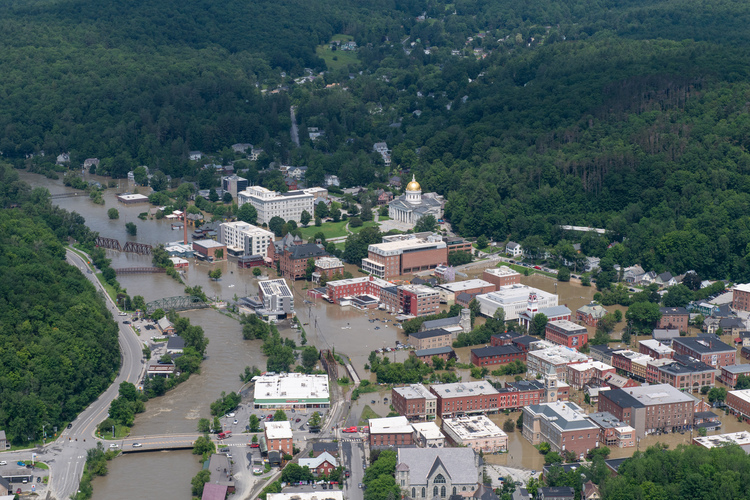BRATTLEBORO — After Tropical Storm Irene did major damage to Vermont in 2011, the state recognized the need to prepare for future storms of that magnitude. People started to take the idea of climate-related weather events more seriously.
In building back our infrastructure, the Agency of Transportation put in larger culverts and stronger bridges, and it paid attention to riverbank restoration, among other measures. Lessons were learned.
Now, a mere 12 years after Irene, these improvements have been tested with catastrophic flooding. Remediation measures protected some communities, while others suffered.
Perhaps Brattleboro escaped the impact we experienced in Irene because of the amount of, or timing of, the rainfall. But I also believe that the restoration of the flood plain at Melrose Terrace played a role in slowing down the Whetstone Brook as it passed through its narrow valley.
We will need to take other recommended measures to address future flooding in our area. A parcel off Williams Street is just now being worked on to take its place as another natural floodplain of the Whetstone, after years of being cut off by an artificial berm.
However, short of building dikes along the Winooski River in Montpelier, there is little remediation that can protect our capital city from inundation in the next flood event. The downtown is not much higher than the river that runs through it.
Many other Vermont communities are built along rivers, and they face this same problem.
* * *
Extreme rainfall events in Vermont are happening more frequently, with great impact to our economy and way of life. At the same time, drought conditions from last summer persisted through recent months. Flooding, drought, higher temperatures, and smoke from Canadian wildfires are affecting our sense of security.
Everywhere in the world, extreme weather due to carbon emissions is becoming the norm.
All this has been predicted for over 35 years. Noted climate scientist James Hansen testified about this topic before Congress in 1988. Vermonter Bill McKibben's book The End of Nature (1989) contained the same predictions.
These warnings have fallen on the deaf ears of many policymakers.
* * *
During my 15 years as a member of the Transportation Committee of the Vermont Legislature, we have worked to cut the state's greenhouse gas emissions from the transportation sector. We have put in place incentives for the purchase of new and used electric vehicles, put money into public transit, and built infrastructure to make it easier for people to get around by bike, by wheelchair, and on foot.
Given the scale of this global problem, these measures might seem insignificant. But I believe we can inspire other towns, cities, and states to take their own actions.
We need to cut the carbon emissions that are warming the planet and causing extremes of temperature and weather.
We need to stop burning fossil fuels now in order to hold to the goals of the Paris Climate Agreement: to keep global temperature rise below 1.5 degrees Celsius above pre-industrial levels. We are not currently on track to meet those goals, portending disastrous consequences for people and their livelihoods.
The scope of the problem is going to require mass mobilization at many levels of government and society. We can't be complacent any longer.
Why should the world's leading oil companies reap record profits while destroying our lives?
And why is this even a political issue? It is a matter of survival.
This latest flooding all around Vermont is a sober reminder that we're running out of time.
Mollie Burke, a Democrat, represents the Windham-8 District in the Vermont House of Representatives.
This Voices Legislative Update was submitted to The Commons.
